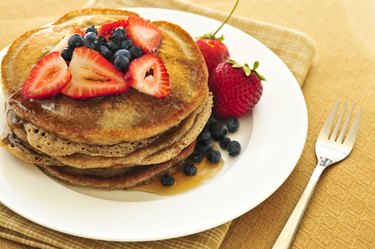
Most people enjoy a stack of pancakes for breakfast, but if you're trying to lose weight or eat healthier, you may consider them a calorie-laden indulgence. However, prepared with whole wheat flour, they can be healthy. Many recipe variations exist, but the basic ingredients are whole wheat flour, baking powder, salt, eggs, milk and oil.
Carbohydrates And Fiber
Video of the Day
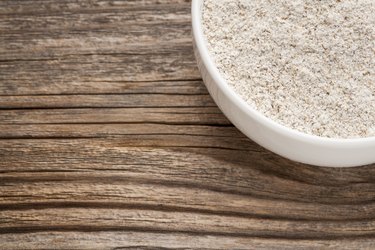
Whole wheat flour, like all whole grains, is a good source of carbohydrates, which provide energy. Whole grains are also a good source of soluble and insoluble fiber. Soluble fiber dissolves in water in your digestive system. It helps slow absorption of sugar into your blood and can lower cholesterol. Insoluble fiber does not dissolve; it helps you avoid constipation. The University of Georgia Health Center says the fiber in whole grains helps you feel full, thereby aiding in weight loss and maintenance.
Video of the Day
Protein, Fat And Cholesterol
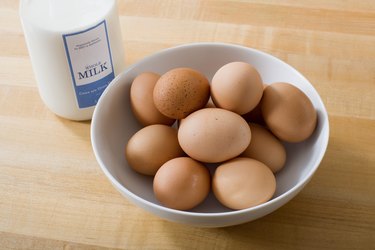
The eggs and milk used to make whole wheat pancakes are good animal sources of protein; the flour is a good plant source. Use skim milk instead of whole. Choose a good vegetable oil, such as canola, for your pancakes. Canola oil has no saturated or trans fat. Eggs contain fat and cholesterol, most of which is found in the yolk. The University of Illinois Extension says you can substitute two egg whites for one whole egg when making pancakes.
Vitamins, Minerals And Sodium
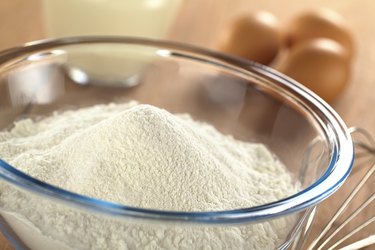
Except for B12, whole wheat flour is an excellent source of B-vitamins. B12 is found in food from animal sources, so the eggs and milk in the pancakes supply B12. Whole wheat flour contains vitamin E, milk is fortified with vitamin D, eggs contain vitamin A and vegetable oil contains vitamin K. Whole wheat flour contains the minerals iron, magnesium and zinc. Milk supplies calcium; eggs contain calcium and iron. Pancake recipes often call for 1 tsp. of salt, which equals the recommended daily sodium intake of 2,300 mg. While salt helps bring out the flavor of ingredients, you can reduce or eliminate it.
Variations
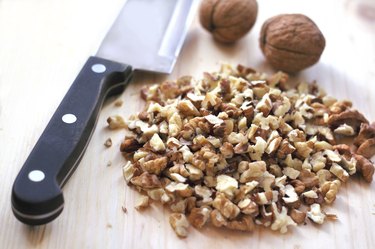
You can make exchanges and additions to basic recipes. For example, replace some whole wheat flour with rolled oats. Add chopped nuts for extra protein and fiber; add fruit for more vitamins and minerals. Sprinkle shredded cheese in your batter or add cooked, chopped veggies. Do whatever you please with the only caveats being that the addition or substitution is a healthy one and that batter consistency remains the same. To achieve the latter, you may need to adjust amounts of basic ingredients.
Toppings
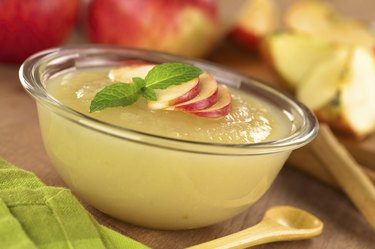
Toppings are often the downfall of pancakes. Skip syrup and make fruit toppings instead. Good choices include most berries, peaches and apples. Heat fruit in a little water over low heat, pressing juice out as fruit softens. If needed, thicken with cornstarch. Applesauce straight out of the jar is another good topping. Eat pancakes with minimal butter or replace it with yogurt. Spread a thin layer of yogurt between each pancake, then top with a warm fruit topping for a delicious breakfast you can feel good about.
- The University Health Center, Georgia: Whole-Grain Goodness
- University of Illinois Extension: Fat and Cholesterol
- Massachusetts Institute of Technology: Best Foods for Specific Vitamins
- Massachusetts Institute of Technology: Best Foods for Specific Minerals
- Whole Grains Council: Whole Grains 101
- Cooks.com: Whole Wheat Pancakes Recipes